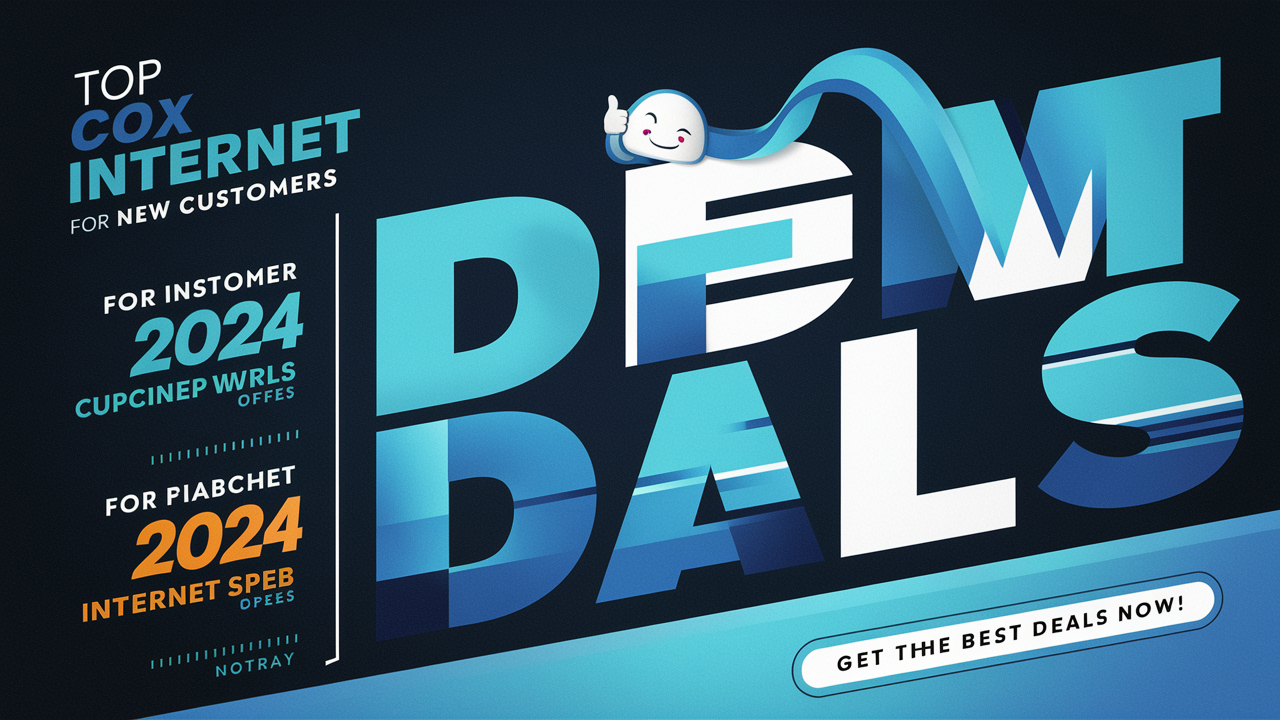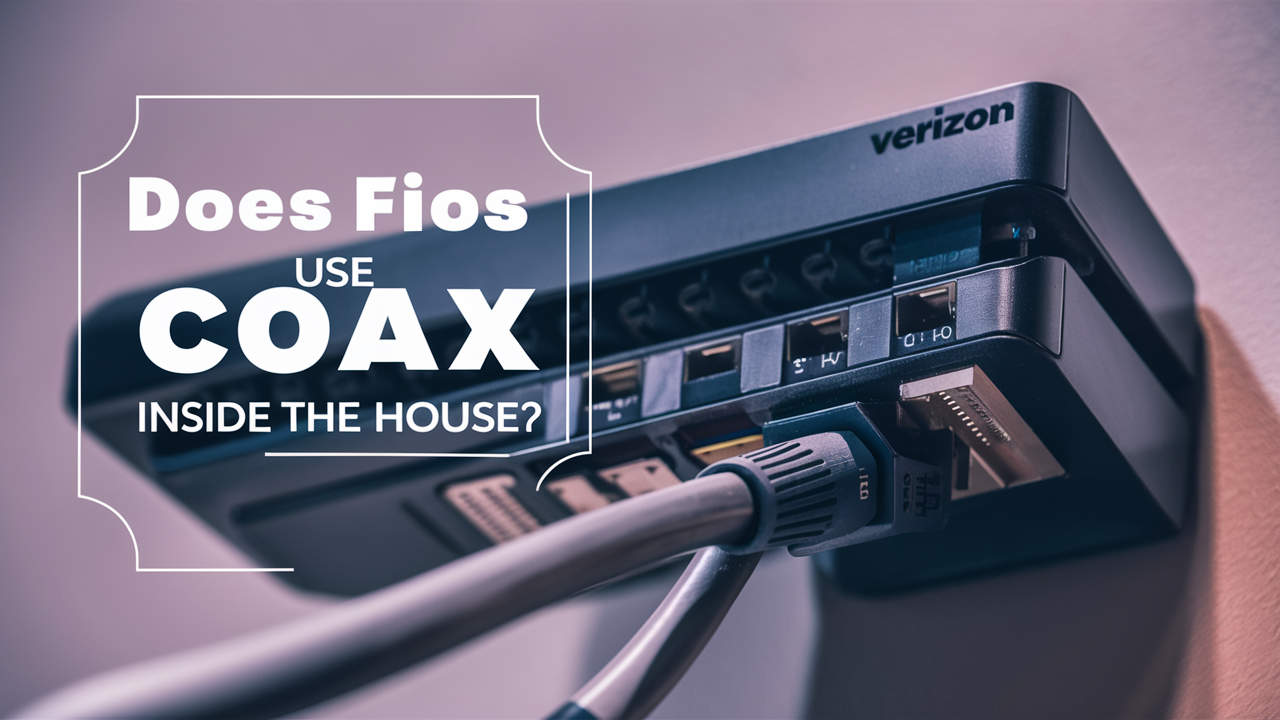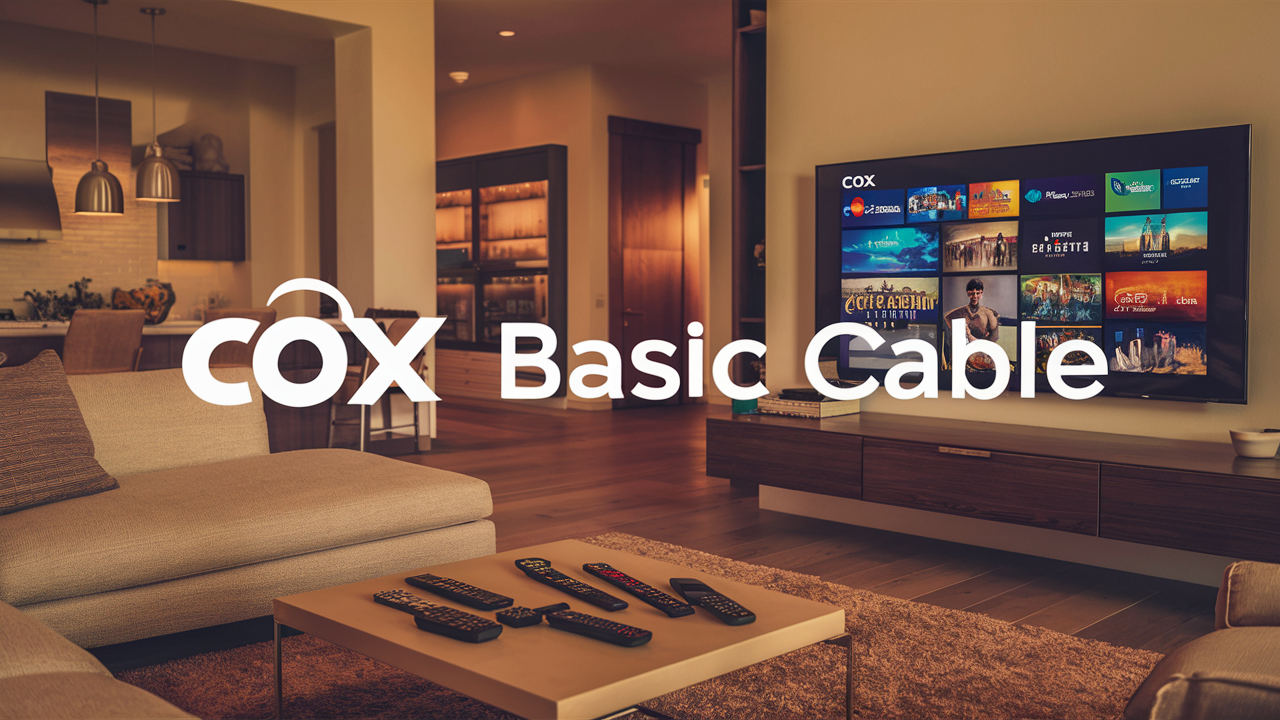Is Cox Internet Worth it?

Is Cox Internet worth it in 2025? This comprehensive guide examines Cox's internet plans, speeds, pricing, customer service, and availability. We compare Cox to competitors, highlight pros and cons, and offer actionable advice to help you decide if Cox is the right fit for your home internet needs, considering current market trends and your specific usage patterns.
[Section 1: Is Cox Internet Worth It in 2025? A Deep Dive into Value and Performance]
In the ever-evolving digital landscape of 2025, reliable and fast internet is no longer a luxury; it's a fundamental necessity. From remote work and online education to streaming entertainment and smart home connectivity, our reliance on robust internet service has never been greater. Amidst a crowded market of internet service providers (ISPs), Cox Communications stands out as a significant player, particularly in its service areas. But the perennial question remains: Is Cox internet worth it? This comprehensive analysis aims to dissect Cox's offerings, scrutinize its performance, and evaluate its value proposition for consumers in 2025. We'll delve into their various internet plans, explore the speeds they offer, analyze their pricing structures, examine customer service feedback, and compare them against key competitors. By the end of this article, you'll have a clearer understanding of whether Cox Communications can meet your specific internet needs and budget, helping you make an informed decision in the dynamic ISP market.
The decision to choose an ISP involves more than just looking at advertised speeds. It requires a holistic view of factors such as data caps, contract requirements, equipment costs, installation fees, and the overall reliability of the network. For Cox, a company with a long history in the telecommunications industry, its market presence is substantial, yet it often faces the same criticisms leveled at many large ISPs, including pricing and customer service experiences. However, Cox also boasts some impressive technological capabilities, particularly with its expanding fiber-optic network and high-speed cable offerings. In 2025, with the continued rise of 5G home internet and increased competition from fiber providers, understanding where Cox fits in is crucial. This article will provide an in-depth look, drawing on the latest available data and user experiences to paint a clear picture of Cox's standing in the current ISP market.
We will explore the nuances of Cox's "ConnectAssist" and "ConnectMore" plans, designed for affordability and standard usage, respectively, alongside their higher-tier "Ultimate" and "Gigablast" options that cater to power users and demanding households. Understanding the advertised speeds versus real-world performance is also a critical component. Many users report that actual download and upload speeds can vary significantly based on network congestion, modem quality, and even the time of day. We will also address the common concern of data caps, which can be a significant factor in the overall value of an internet plan, and investigate Cox's policies in this regard for 2025. Furthermore, the cost of equipment, such as modems and routers, and the potential for additional fees for installation or activation, will be thoroughly examined. By providing this detailed breakdown, our goal is to equip you with the knowledge needed to determine if Cox Internet is a worthwhile investment for your home in 2025.
[Section 2: Understanding Cox Internet: Plans, Speeds, and Technology]
Cox Communications offers a tiered structure of internet plans designed to cater to a wide range of consumer needs and budgets. Understanding these plans is the first step in evaluating their worth. The core of Cox's internet service relies on its extensive hybrid fiber-coaxial cable network, which provides a robust foundation for high-speed data transmission. In 2025, Cox continues to invest in upgrading this infrastructure, aiming to deliver faster speeds and greater reliability to its subscribers.
Internet Plan Tiers and Speeds (2025 Overview)
Cox typically categorizes its plans into several tiers, each with varying download and upload speeds. While exact speeds can fluctuate based on location and network capacity, the general structure for 2025 includes:
- ConnectAssist: Often positioned as an affordable option for low-usage households, this plan typically offers download speeds suitable for basic web browsing, email, and standard-definition streaming. Speeds might range from 25 Mbps to 50 Mbps download. This plan is often a lifeline option for those who qualify for government affordability programs.
- ConnectMore: This is the most common mid-tier plan, designed for average households. It provides sufficient bandwidth for multiple users, HD streaming, online gaming, and video conferencing. Download speeds typically range from 100 Mbps to 300 Mbps.
- Essential/Preferred: Depending on the region, Cox may offer plans in this range, bridging the gap between ConnectMore and higher tiers. Speeds could be anywhere from 300 Mbps to 500 Mbps download, suitable for larger families with significant online activity.
- Ultimate: This plan targets power users and households with high bandwidth demands. Expect download speeds in the range of 500 Mbps to 700 Mbps, ideal for simultaneous high-definition streaming, large file downloads, and intensive online gaming.
- Gigablast: Cox's premium offering, Gigablast, aims to deliver speeds close to 1 Gbps (1000 Mbps) download. This plan is designed for the most demanding users, including those who frequently download massive files, utilize multiple high-bandwidth applications simultaneously, or have a home filled with smart devices.
It's crucial to note that upload speeds are often significantly lower than download speeds on cable internet plans. For instance, a Gigablast plan might offer 1 Gbps download but only 35 Mbps upload. This asymmetry can be a limiting factor for activities like uploading large video files, hosting video conferences with many participants, or running a home server.
Technology Backbone: Cable vs. Fiber
Cox primarily utilizes a hybrid fiber-coaxial cable network. This means that fiber optic cables run from Cox's network to neighborhood nodes, and then coaxial cable is used to connect those nodes to individual homes. This technology has been the backbone of high-speed internet for years, offering substantial bandwidth. However, as fiber-to-the-home (FTTH) technology becomes more prevalent, offering symmetrical upload and download speeds and greater future-proofing, the limitations of cable infrastructure are becoming more apparent for some users.
Cox has been investing in DOCSIS 3.1 and newer standards, which significantly boost the capacity and speed of their existing cable infrastructure. This allows them to offer multi-gigabit download speeds. However, the upload speed limitations remain a characteristic of this technology. For users whose primary internet activities involve heavy uploading, a fiber-optic alternative, if available, might offer a better performance profile.
Data Caps and Contractual Obligations
A significant factor influencing the value of any internet plan is the presence of data caps. In 2025, many Cox plans come with a monthly data allowance. For example, plans below Gigablast might have a 1TB (terabyte) data cap. Exceeding this limit can result in additional charges or a throttling of speeds. While 1TB is substantial for many households, heavy streamers, gamers, or those who frequently download large files might find themselves approaching or exceeding this limit. Cox does offer unlimited data plans, but these typically come at a premium price, adding to the overall cost.
Contractual obligations are also a consideration. While Cox has moved towards offering more month-to-month options, some promotional pricing or bundled services might still require a 12-month or 24-month contract. Breaking these contracts early can incur substantial early termination fees. Understanding the terms and conditions, including data policies and contract lengths, is vital before committing to a Cox internet plan.
[Section 3: Cox Internet's 2025 Landscape: Trends, Pricing, and Availability]
The internet service provider market in 2025 is characterized by rapid technological advancements, increasing demand for higher speeds, and a dynamic pricing environment. Cox Communications operates within this landscape, facing both opportunities and challenges. Understanding the current trends and Cox's position within them is crucial for assessing its value.
Key 2025 Trends in the ISP Market
Several overarching trends are shaping the ISP industry in 2025:
- The Unrelenting Demand for Speed: As content becomes richer (e.g., 4K/8K streaming, immersive gaming, VR/AR applications) and the number of connected devices per household grows, the need for higher download and upload speeds continues to escalate.
- Fiber Expansion: Fiber-to-the-home (FTTH) networks are expanding rapidly, offering symmetrical speeds and superior reliability. This poses a direct challenge to cable ISPs like Cox, especially in areas where fiber is available.
- 5G Home Internet: Wireless providers are increasingly offering fixed wireless access (FWA) solutions using 5G technology. While still maturing, 5G home internet presents a competitive alternative, particularly in areas underserved by traditional broadband.
- Bundling and Value-Added Services: ISPs are increasingly bundling internet with other services like TV, mobile, and home security to increase customer loyalty and revenue.
- Focus on Affordability: Government initiatives and increased competition are driving a greater focus on providing affordable internet options for low-income households.
Cox's Pricing Structure in 2025
Cox's pricing is highly variable and depends on the specific plan, speed tier, promotional offers, and geographic location. Generally, Cox's pricing can be perceived as mid-to-high range compared to some competitors, especially when factoring in potential equipment rental fees, data overage charges, and the cost of unlimited data add-ons. Here's a general outlook for 2025:
- Introductory Pricing: New customers often benefit from significantly discounted introductory rates for the first 12-24 months. These prices are attractive but will increase substantially once the promotional period ends.
- Standard Pricing: After promotional periods, the monthly cost for Cox internet plans can rise considerably. For instance, a ConnectMore plan might start at $50-$60/month but jump to $80-$100+/month after the introductory period.
- Gigablast Pricing: The premium Gigablast plan can range from $100 to $150+ per month, depending on promotions and location.
- Equipment Rental: Cox typically charges a monthly fee for modem/router rentals, often around $10-$15 per month. Purchasing your own compatible equipment can save money in the long run.
- Unlimited Data Add-on: If a plan has a data cap and you anticipate exceeding it, the cost to add unlimited data can be substantial, often adding $30-$50 per month to the bill.
It is imperative for consumers to scrutinize the total monthly cost, including all fees and potential add-ons, and to be aware of the price increases after promotional periods expire. Comparing the price per Mbps can also be a useful metric, though it doesn't account for upload speeds or data caps.
Availability and Geographic Reach
Cox Communications is a major cable operator in the United States, but its service footprint is geographically concentrated. Cox primarily serves specific regions, including parts of Arizona, California, Connecticut, Florida, Georgia, Nevada, Ohio, Oklahoma, and Virginia. Unlike national providers like AT&T or Verizon (in some areas), Cox's availability is limited. This means that for many consumers, Cox may not even be an option, or it might be one of the few broadband providers available in their area.
In areas where Cox is the dominant or sole high-speed provider, its market power can influence pricing and service quality. This lack of competition can sometimes lead to higher prices and less incentive for service improvements compared to areas with multiple broadband options. Therefore, the "worth" of Cox internet is heavily influenced by the competitive landscape in a specific user's location.
[Section 4: Navigating Cox Internet: A Step-by-Step Guide to Choosing and Signing Up]
Deciding if Cox Internet is the right choice involves a structured approach. This guide provides actionable steps to help you navigate the process, from initial research to signing up for a plan.
Step 1: Assess Your Internet Needs
Before looking at any ISP, understand your household's internet usage. Consider:
- Number of Users: How many people will be using the internet simultaneously?
- Types of Activities: Basic browsing, email, social media? HD/4K streaming? Online gaming? Video conferencing for work/school? Large file downloads/uploads? Smart home device usage?
- Number of Devices: How many devices (computers, phones, tablets, smart TVs, game consoles, smart home devices) will be connected?
- Speed Requirements: For most households, 100-300 Mbps download is sufficient. Power users or those with many simultaneous high-bandwidth activities might need 500 Mbps or higher. Upload speeds are critical for video conferencing and large file uploads.
- Data Usage: Estimate your monthly data consumption. Streaming 1 hour of HD video uses about 3GB. 4K streaming uses significantly more. Large game downloads can be 50-100GB+.
Step 2: Check Cox Availability and Specific Plans in Your Area
Visit the official Cox Communications website (cox.com) and enter your full address. This is crucial because:
- Availability Varies: Cox service is not nationwide. Your address might not be covered.
- Plan and Speed Differences: The exact plans, speeds, and pricing can differ even within the same city due to infrastructure variations and local competition.
- Promotional Offers: You'll see the most current introductory deals and bundle options available for your specific location.
Step 3: Analyze Plan Details Carefully
Once you've identified available plans, scrutinize the details:
- Advertised Speeds: Note both download and upload speeds. Understand that advertised speeds are "up to" and real-world speeds may vary.
- Data Caps: Check for monthly data allowances (e.g., 1TB). Understand the costs of exceeding the cap or the price for an unlimited data add-on.
- Pricing: Identify the introductory price, the standard price after the promotion ends, and the duration of the promotion.
- Contract Terms: Are you required to sign a contract (e.g., 12 or 24 months)? What are the early termination fees?
- Equipment Costs: Will you rent a modem/router from Cox (and the monthly fee), or can you use your own compatible equipment?
- Installation Fees: Is there a one-time fee for professional installation? Can you opt for self-installation to save money?
- Bundling Options: Does Cox offer discounts if you bundle internet with TV or phone services? Evaluate if these bundles truly offer value or if they lock you into services you don't need.
Step 4: Compare with Alternatives
Even if Cox is available, it's wise to compare it with other ISPs in your area. Use online comparison tools or visit the websites of competitors like:
- Other Cable Providers: Spectrum, Xfinity (if they serve your area).
- Fiber Providers: AT&T Fiber, Verizon Fios, Google Fiber, or local fiber companies.
- DSL Providers: CenturyLink/Quantum Fiber (often slower but may be available where others aren't).
- 5G Home Internet: T-Mobile Home Internet, Verizon 5G Home Internet.
Focus on the same metrics: speed, data caps, pricing (including long-term costs), contract terms, and equipment fees. Pay special attention to upload speeds and data caps, as these are often differentiating factors.
Step 5: Contact Cox and Negotiate (If Possible)
Once you have a preferred Cox plan, contact their sales department. You can do this online, by phone, or in person.
- Ask About Promotions: Inquire about any current deals not advertised online, especially if you're switching from another provider.
- Negotiate Equipment Fees: Ask if you can use your own modem/router or if there are any waivers for equipment rental fees.
- Clarify Contract Terms: Ensure you fully understand the contract length, early termination fees, and price increases.
- Confirm Installation Details: Understand the process, costs, and scheduling for installation.
Step 6: Sign Up and Prepare for Installation
If you decide Cox is the best option, proceed with the signup. Ensure you receive a confirmation of your chosen plan, pricing, and installation date. If opting for self-installation, ensure you have a compatible modem/router and the necessary coaxial cables. If professional installation is required, be present during the scheduled window to oversee the setup and ensure everything is functioning correctly.
[Section 5: Cox Internet vs. The Competition: A 2025 Comparison Analysis]
To truly determine if Cox Internet is worth it, we must compare its offerings against major competitors in 2025. The comparison will focus on key metrics like speed, pricing, data caps, and technology type, recognizing that availability is the primary gatekeeper.
| Feature | Cox Internet (Typical Offerings) | Fiber Internet (e.g., AT&T Fiber, Verizon Fios) | Cable Internet (e.g., Spectrum, Xfinity) | 5G Home Internet (e.g., T-Mobile, Verizon) |
|---|---|---|---|---|
| Technology | Hybrid Fiber-Coaxial Cable | Fiber Optic (FTTH) | Hybrid Fiber-Coaxial Cable | Fixed Wireless (5G) |
| Download Speeds (Typical Max) | Up to 1 Gbps (Gigablast) | Up to 2 Gbps or higher | Up to 1 Gbps (depending on provider/area) | 50-300+ Mbps (variable) |
| Upload Speeds (Typical Max) | Up to 35-50 Mbps (asymmetrical) | Symmetrical (e.g., 1 Gbps up/1 Gbps down) | Up to 35-50 Mbps (asymmetrical) | Variable, often lower than download |
| Data Caps | Often 1TB on lower/mid-tier plans; unlimited option available at extra cost. | Typically unlimited. | Varies by provider; some have caps, some unlimited. | Typically unlimited. |
| Pricing (Standard, Post-Promo) | Mid-to-High ($80-$150+ for higher tiers) | Competitive, often similar to high-tier cable ($70-$120+) | Mid-to-High ($70-$130+ for higher tiers) | Low-to-Mid ($50-$75) |
| Contracts | Often month-to-month available, but some promotions may require contracts. | Typically no contracts required. | Varies; some providers offer month-to-month. | Typically no contracts required. |
| Reliability/Latency | Generally good, but can be affected by neighborhood congestion. Moderate latency. | Excellent, very low latency, less affected by congestion. | Generally good, similar congestion potential to Cox. Moderate latency. | Can be variable; depends on signal strength and network load. Latency can be higher than wired. |
| Availability | Limited geographic regions. | Expanding, but still limited compared to cable. | Widespread in many areas, often competes directly with Cox. | Growing rapidly, often available where wired options are poor. |
Key Takeaways from Comparison:
- Fiber's Superiority: For users prioritizing upload speeds, low latency, and consistent performance, fiber internet is the gold standard. If available, it often presents a strong case against cable providers like Cox.
- Cable vs. Cable: Cox competes directly with other major cable providers like Spectrum and Xfinity. The choice between them often comes down to specific pricing, promotional offers, and local customer service reputation in your area. Cox's Gigablast plans are competitive with the highest tiers of other cable providers.
- 5G Home Internet as an Alternative: 5G home internet offers a compelling, often cheaper, alternative, especially for basic internet needs or in areas with limited wired options. However, its performance can be more variable, and it's generally not suitable for heavy users or competitive gamers due to potential latency and speed fluctuations.
- Data Caps: Cox's reliance on data caps on many plans is a significant differentiator compared to most fiber providers and some cable competitors who offer unlimited data more broadly. This can impact the overall value if you're a heavy data user.





